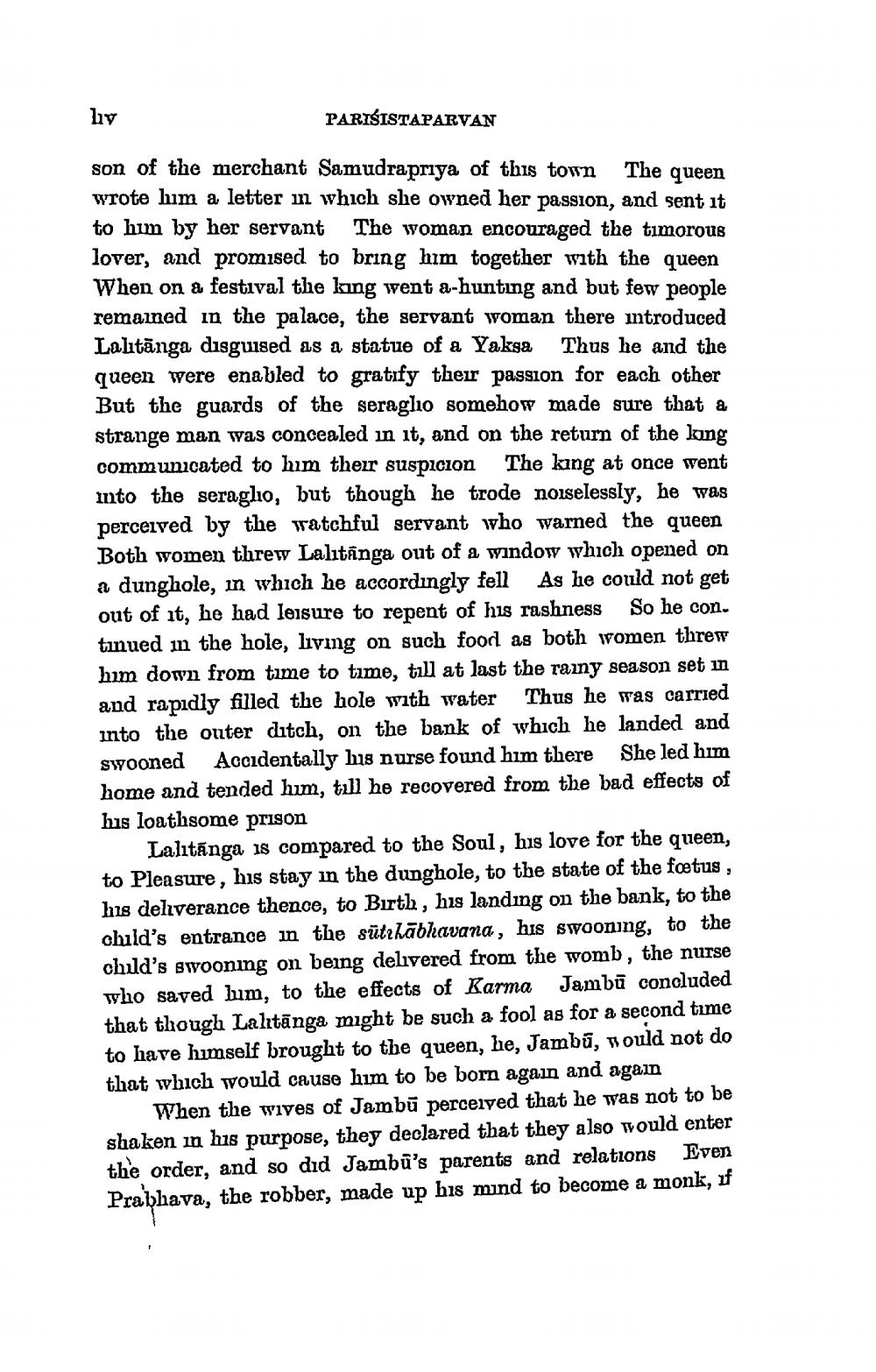________________
ly
PARISISTAPARVAN
son of the merchant Samudrapriya of this town The queen wrote him a letter in which she owned her passion, and sent it to him by her servant The woman encouraged the timorous lover, and promised to bring him together with the queen When on a festival the king went a-hunting and but few people remained in the palace, the servant woman there introduced Laltānga disguised as a statue of a Yaksa Thus he and the queen were enabled to gratify their passion for each other But the guards of the seraglio somehow made sure that a strange man was concealed in it, and on the return of the long communicated to him their suspicion The king at once went into the seraglio, but though he trode noiselessly, he was perceived by the watchful servant who warned the queen Both women threw Lalitânga out of a window which opened on a dunghole, in which he accordingly fell As he could not get out of it, he had leisure to repent of his rashness So he con. tinued in the hole, living on such food as both women threw him down from time to time, till at last the rainy season set in and rapidly filled the hole with water Thus he was carried into the outer ditch, on the bank of which he landed and swooned Accidentally bus nurse found him there she led him home and tended him, till he recovered from the bad effects of his loathsome prison
Lalitānga is compared to the Soul, his love for the queen, to Pleasure, his stay in the dunghole, to the state of the foetus , his dehverance thence, to Birth, his landing on the bank, to the child's entrance in the sütrhābhavana , his swooning, to the child's swooning on being delivered from the womb, the nurse who saved bim, to the effects of Karma Jambū concluded that though Laltānga might be such a fool as for a second time to have himself brought to the queen, he, Jambû, would not do that which would cause him to be born again and again
When the vives of Jambū perceived that he was not to be shaken in his purpose, they declared that they also would enter the order, and so did Jambū's parents and relations Even Prabhava, the robber, made up his mind to become a monk, of




